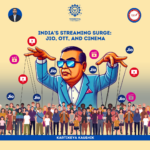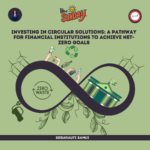“The rich get richer”- This is a statement that we come across very often. But have you ever wondered why this is true? How the socioeconomic unfairness leads to this is something we will talk about in this article.
There are different types of goods available for every income group. But what is the difference between these commodities and why do they cost different? What impact does it have on the short term and long-term income and saving stream of the consumer?
An observation that lead to a theory gave answers to most of these questions was given by a person named Samuel Vimes. He studied and observed closely the spending habits of the rich and the poor. It was noticed that if two people, a rich person and a relatively poorer person with a lesser disposable income require boots, they would spend on different quality of boots. The richer person who has a higher disposable income would spend it on good quality boots that costs, say Rs.3000; whereas the relatively poorer person with a lesser disposable income would spend a lesser amount for the same commodity, say Rs.200
Although they both get the same commodity, the quality of the boots would differ. The Rs.200 boots would get worn off very easily and would become un wearable very fast due to wear and tear of the low-quality material used. This would arise the requirement to buy boots again for the person with the lesser amount of disposable income. Within a month, the poorer person would have to spend Rs.200 to buy boots again. All this while, the richer person spent Rs.3000 on boots once and they would stay intact for years.
This observation gave rise to the argument that the rich get richer because they spend less over time by making better decisions because they have access to capital. Higher capital and a higher disposable income help the rich to make better decisions, whereas the poor cannot exercise this option due to less capital access.
This was known as the “Boots Theory”
The same can be applied to any commodity. Say a second-hand car that has been repaired without a good warranty and gives a bad mileage as compared to a new car that relatively costs higher will eventually cost less over a longer period as it will give a good mileage (less variable cost) and also is less likely to break down.
Economics believes all consumers are rational consumers and take the best decisions. But these decisions can only be taken with access to capital or effective access and use of credit. This would result in savings overtime and eventually lead in less spending over a longer period of time.
— By Harsimran Kaur Chawla , PGDM, TAPMI














Leave a comment